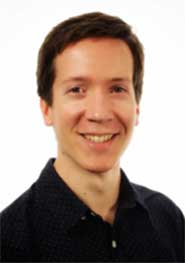05-MCM-CM Computational Materials Science
Representative Tim Neudecker
The most important computational methods for the quantum mechanical modeling of materials in the electronic ground state will be discussed in detail. These methods will be applied in a practical course towards the end of the semester, after the lecture block is finished. The following aspects will be treated in the module: Hartree-Fock theory; electron correlation and post-Hartree-Fock methods; Density Functional Theory; Basis sets (Gaussian and plane-wave); calculations with periodic boundary conditions
The students will have an understanding of the state-of-the-art computational methods in materials chemistry and mineralogy and will…
...be able to assess the reliability of a given computational method in the description of an experiment, e.g. when reading literature
...be able to devise basic computational protocols to calculate a desired property
...have first experiences in the usage of quantum mechanical program packages
Basic knowledge of quantum mechanics and molecular orbital theory
Course Type 1: Lecture (L) 3.0 SWS ( 42.0 h)
Course Type 2: Practical Laboratory (LP) 1.0 SWS ( 14.0 h)
Tutorial(s): -
Workload:56.0 h presence time
84.0 h self-study
40.0 h exam workload
180 h total workload
combination exam
exam elements: 2
SL: 0
70 % oral exam
30 % internship report
Cramer: Essentials of Computational Chemistry
Szabo/Ostlund: Modern Quantum Chemistry
Parr/Yang: Density Functional Theory of Atoms and Molecules
Martin: Electronic Structure: Basic Theory and Practical Methods
Basic Data
Master Materials Chemistry and Mineralogy
Module Type
Elective
First Year of Study
Offering Departement
FB2 Biology/Chemistry
Sommersemester
Course LanguageGerman and English
6 CP
4 SWS
Contact

Contact
Prof. Dr. Tim Neudecker
UFT 1250
 uni-bremen.de
uni-bremen.deContact

Contact
Prof. Dr. Tim Neudecker
UFT 1250
 uni-bremen.de
uni-bremen.de
